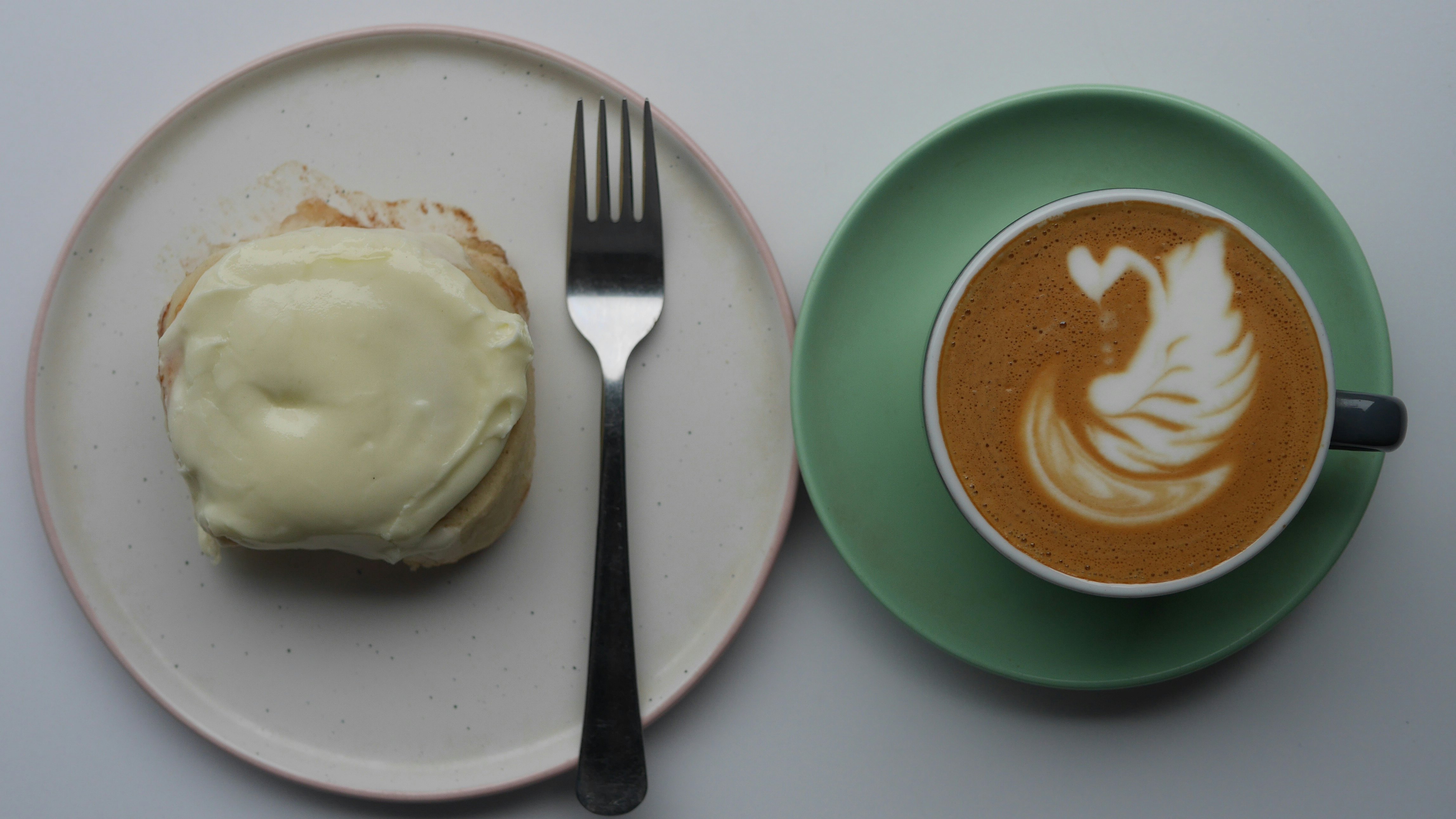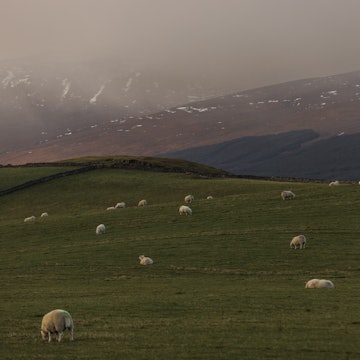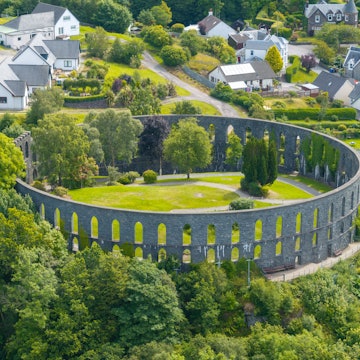

For the best coffee, you might have to look a little further afield than your hotel © Ekaterina Smirnova / Getty Images
What’s it like to travel as someone who doesn’t drink alcohol? For one thing, it can mean feeling like you’ve missed out on a whole side to a destination. No bar crawls, no searching out the local speakeasy, no making friends with locals and other travelers at some underground nightclub. Booze is, as we all know, a social lubricant, so not partaking can leave us teetotallers feeling left out. But there is a solution.

If you’re anything like me, traveling sober means visiting coffee shops. Lots of coffee shops. Cafes, and the people you meet and talk to while in them, are a valuable resource when travelling – they can give precious local insights, and spending time in coffee shops is a great way to get a feeling for a city’s atmosphere and culture.
As someone who used to work in the speciality coffee industry – as a barista, a coffee roaster, and a marketer – I’m familiar with the urge to visit every coffee shop in a given city. I’ve even planned trips around coffee. But even if you just like the drink (and want to take some Instagrammable photos of latte art) it’s worth contemplating how coffee shops can enhance and improve your trip.

Coffee is a truly universal beverage, and it can now be found in nearly every corner of the world. The growth of high quality speciality coffee over the past decade has been staggering, with most cities now hosting a thriving scene. As a bonus, the caffeine will give you the energy you need to get out into your destination and really explore it.
Here are some tips and ideas on how to use coffee as the ultimate travel guide, companion, and social instigator.

(A quick note before we get going: this article is focusing on speciality, or third wave, independent coffee shops. Think exposed ductwork, lo-fi indie soundtrack, a tousle-haired barista or two, and locally-sourced or otherwise high quality coffee. If you’re looking for your nearest Starbucks, they have their own cafe locator. Or you could glance twenty feet to your left – there’s probably one right there.)
Coffee guides and trip planners
Once you’ve decided on where you’re going to visit, a good first start for finding coffee shops is your favourite search engine – although be aware that searching 'Los Angeles coffee' will bring up a lot of choices, most of which won’t be worth visiting. Searching Instagram hashtags is another easy place to do some research (#londoncoffeeshops, #tokyocafe, #melbournecafes for example) but can be a rabbit hole of staring at beautiful cafe interiors, so be careful there as well.

Next, there are a few helpful guidebooks, websites, and apps geared solely toward finding the best coffee shops in a given area. In the United Kingdom, the Independent Coffee Guide publishes one guidebook per year for the various regions, as well as Ireland. London and New York City have their own guidebooks, because you'd need good luck navigating their innumerable cafes without one.
Best Coffee is a website and app that is constantly updated with new cafes chosen by coffee experts, and covers many cities around the world from Auckland to Madrid to Singapore. The app isn’t free, but it’s a great resource if you’re visiting any of the cities it covers. If you’re headed to Australia, Beanhunter is the app for you.
Going a bit more in depth, the website Sprudge has a host of city guides (disclosure: I’ve written a few of them). These articles go into more detail than most, offering five or more of the best cafes in a given city, with info including what coffee is served and how it is brewed. Brian’s Coffee Spot is another good resource, covering Europe, North America and East Asia with in-depth articles, maps, and photo galleries.

Plan your trip around coffee
In the summer of 2016, my wife and I took a road trip from Michigan up to Montréal via Toronto, down through New York state to Washington, DC, then all the way south to Savannah, Georgia, before heading to Alabama and back home through Tennessee. A good portion of the stops on this trip were coffee-related: Toronto and Montreal both have stellar coffee scenes, for a start, while pretty much every city we stopped in, no matter how small, had something to offer coffee-wise.
Visiting coffee shops and chatting with the baristas who work there is a good way to get to know a city and get recommendations on where else to visit. For example, we found Perc Coffee Roasters in Savannah because a barista at a previous stop raved about it. Inside a big brick warehouse, tucked into a nondescript neighborhood far away from the more popular tourist destinations, we found a crew of people eager to chat and give us additional Savannah-based recommendations – plus a seat at the bar, a refreshing cold brew, and a view of the roasting operation in full swing.

Likewise, while in Glasgow, Scotland, a barista at one coffee shop told me about a cafe on the south-side of the city that had only just opened and was therefore not yet showing up in search results. The shop is called It All Started Here, and it turned out to be one of the best coffee experiences I had while in the city. What started life as a pop-up at events around Scotland proved so popular that a brick-and-mortar cafe was quick to follow. Using a multi-roaster model, where coffee from roasters around the country is rotated weekly, It All Started Here approaches the craft with meticulous care and focus, serving coffee and an ever-expanding food menu that sparkle with originality and flavour.
The lesson here: talk to your barista, ask questions, and always, always, tip.

How do I know this coffee shop is good before going?
This is an important question, because there are so many coffee shops in any given city that there’s always a chance the one you’ve chosen might be a letdown. So how can you decide beforehand? Here are some tips:
What’s their Instagram like?
If you see a lot of artfully-taken photos of latte art and kettles pouring hot water over ground beans, chances are it’s worth visiting. There is definitely an element of self-parody to some of these photos, but if nothing else it’s at least a sign that the company cares enough to put effort into its account.
Has anything been written about them?
Another shameless plug, but the coffee tours of various cities in Sprudge are all visited and vetted before being included (I spent a day in Grand Rapids, Michigan, drinking far too much coffee, while researching the tour I wrote for that city). If a coffee shop shows up in one of these articles, then it might be worth visiting.

Who roasts their beans?
If they roast their own, then there’s a better chance of the coffee being decent (or at least fresh). If they’re a multi-roaster, look to see who supplies them – is it big name speciality roasters like Counter Culture Coffee (in the US), Square Mile (in the UK), or The Barn (in Germany)? That’s a good sign. Is it a local micro-roaster whose website features a tattooed arm swirling some roasted beans around in a cooling tray? Even better.
What kind of espresso machine do they use?
This is a massive generalization, but my rule of thumb is that if a cafe I want to visit has a La Marzocco, then it’ll probably be at least worth a look.

Can’t I just drink the hotel coffee?
Well you can, but it probably won’t be good. Some hotels are starting to take coffee more seriously, and a few even have full-blown cafes in their lobbies, but your best bet if you’re trying to save money is to pack your own beans, a hand grinder, and some kind of transportable brewer (the AeroPress is popular among travelers for its quality and robustness). Or, if that seems like too much effort, there are a number of companies producing speciality instant coffee, such as Voila and Sudden.
With options like this, and the growing ubiquity of great coffee all over the world, there’s really no excuse not to drink good coffee while traveling. And if you’re trying to do so sober, coffee shops make for a great alternative to pubs and bars as a way to meet new people and scope out the local culture. Trust me, I’ve been doing it for years.
Get more travel inspiration, tips and exclusive offers sent straight to your inbox with our weekly newsletter.






















